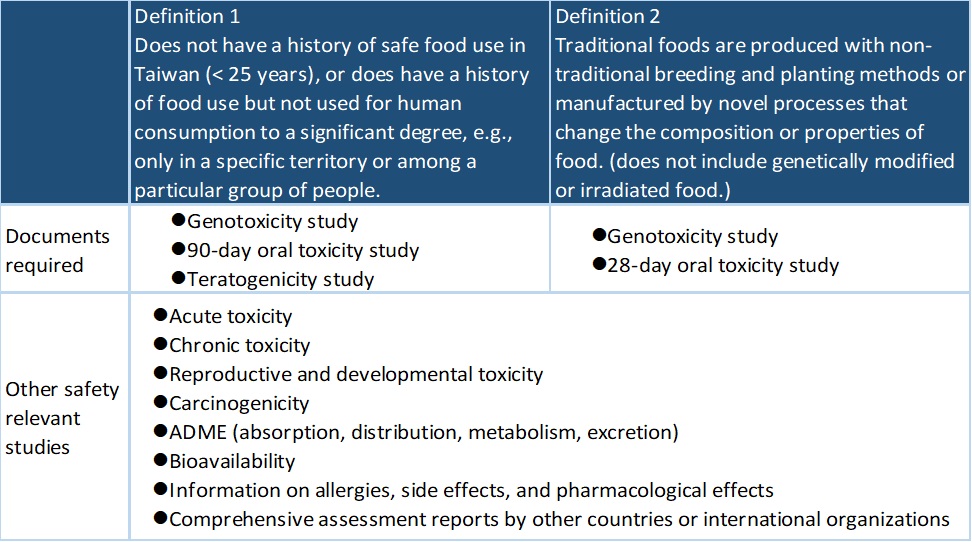- Guideline
Health Food Safety Assessment Method
OECD 408: Repeated Dose 90-Day Oral Toxicity Study in Rodents
- Test system
SD rats
- Aim
To investigate the potential systemic toxicity of the test article on mammals after repeated feeding for 90 days, and to assess the No-Observed-Adverse-Effect Level (NOAEL).
Non-traditional Food Ingredients
According to Taiwan FDA, with the development of technology and the increasing international trade, more and more non-traditional food ingredients are available. In addition, the compositions and properties of many traditional foods have been changed due to non-traditional cultivation, reproduction, or new processing technology. These are all considered non-traditional food ingredients, which must undergo safety assessments to confirm that they do not constitute a health hazard.
Under the definition of non-traditional food ingredients defined by the Taiwan FDA, safety assessments requested for the application of non-traditional food ingredients are as follows:

Medgaea provides GLP toxicity studies and registration consultants to assist our clients in addressing the regulatory requirements for applying non-traditional food ingredients. Welcome to contact us.


- Guideline
Health Food Safety Assessment Method
OECD 414: Prenatal developmental toxicity study
- Test system
Pregnant female SD rats
- Aim
To assess the effects of test substances on embryonic development
